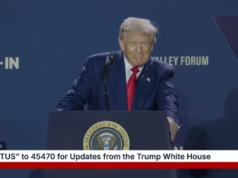
Technology companies and other employers were left scrambling yesterday after a federal judge issued a nationwide injunction on new overtime rules for white-collar workers slated to take effect Dec. 1. The new rules were expected to affect more than 4 million employees, many in the tech sector.
The rule in question is a U.S. Department of Labor regulation that would have raised the salary limit for automatic overtime eligibility to $47,476 from the current level of $23,660. Employees who receive salaries or wages below the eligibility level must be paid time and a half for all hours worked over 40 per week.
Few Workers Protected Under Current Law
The injunction by U.S. District Court Judge Amos Mazzant in Sherman, Texas, is only a temporary measure until he makes his final ruling. However, court watchers expect the injunction indicates that the judge will ultimately rule against the change in the salary limit. The decision gives the U.S. Department of Justice and the Obama administration little time to appeal the ruling before a new administration takes over in January.
President-elect Donald Trump, meanwhile, has promised to overturn many of the regulations issued by the President Barack Obama’s administration, and Republicans in Congress have singled out the salary limit increase for particular criticism.
The new regulation was expected to have had a major impact on white-collar workers, many of whom are employed by the tech sector. Few white-collar and even blue-collar workers are currently covered by the Fair Labor Standards Act. Only 7 percent of employees nationwide fall below the $23,660 limit, most in the retail and hospitality sectors.
But it wasn’t always this way. As recently as 1975, 62 percent of workers were covered by the overtime limit, many of them salaried workers. Had the limit change gone into effect, it would have been the first such increase in more than a decade.
Larger Employers Now at a Disadvantage
While many business groups have lobbied strenuously against the new regulations, the decision to temporarily halt their implementation could put many large companies in a difficult position. Because the change was expected to go into effect next month, many employers have already adjusted their budgets accordingly, giving salaried workers raises to exempt them from the rule.
Large companies that have already adjusted their salaries in anticipation of the change may now be at a disadvantage. Rolling back a recent salary increase will likely prove unpopular among workers. But smaller companies that had delayed changing their compensation policies will now likely face labor costs that are lower than what their larger competitors will face.
Twenty-one states had challenged the Obama administration’s executive order, arguing that the president lacked the authority to make such a substantive change to labor regulations. Business lobbying groups, such as the National Federation of Independent Businesses, National Association of Manufacturers, and the Chamber of Commerce, applauded the judge’s decision. The Labor Department said it is considering all of its legal options in the aftermath of the ruling.







